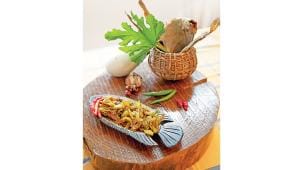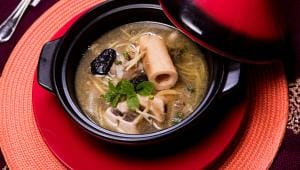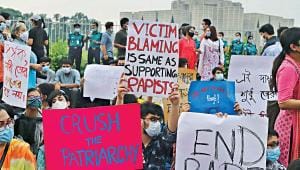Shahana Huda Ranjana
#Perspective / We have to speak up against marital rape
In Bangladesh, the definition of rape has an exception. It says that only if the girl is under the age of 14, “sexual relations will be considered rape.” However, in Bangladesh, individuals are considered children until the age of 16, and the age is 18 according to the United Nations.
5 March 2023, 11:36 AM
5 March 2023, 11:36 AM
#Perspective / Wearing a teep is my choice
As a Bengali woman, donning a teep is part of one’s culture and tradition. I had seen my mother use the teep as a part of her look in the ’60s and ’70s. It was not just my mother; many in my family wear the teep. I wear them every day myself, and in my opinion, it has nothing to do with the plight of my piety.
5 March 2023, 11:11 AM
5 March 2023, 11:11 AM
Fresh fish or shutki?
Shutki is often on the list of favourite foods in a Bengali household. Those who love shutki love it for its intense aroma. Those who avoid it or don’t like it, do so for the same reason as well.
15 February 2023, 18:00 PM
15 February 2023, 18:00 PM
Dear ministers, for how long will you mock our misfortunes?
Does the government not know of the plight of lower- and middle-income groups?
14 August 2022, 16:00 PM
14 August 2022, 16:00 PM
Make simple but traditional beef dishes this Eid
Cooking various dishes of meat is a time-tested culture of the Eid-ul-Azha festival. Every family has their favourite recipes, and Eid day traditions of Qurbani activities. Nothing quite brings out the foodie side of people like the festival of sacrifice.
4 July 2022, 11:15 AM
4 July 2022, 11:15 AM
mother & child Welfare / Maternity Leave is a basic worker right
A woman becomes a mother not only because of her own right, but also because this keeps the ball rolling for family, society, and the nation. From the day a child is conceived to the time it is born, the development of the child is not the sole responsibility of the mother. Then why are women still being forced to sign away their right to motherhood while seeking a job?
28 March 2021, 18:00 PM
28 March 2021, 18:00 PM
How prepared are our women’s right movement activists?
Once at an event, advocate Sultana Kamal expressed bitterly how the women of Bangladesh have to start their race from the very beginning, whereas their male counterparts, participating in the same race, have a starting point somewhere comfortably set in the middle.
16 February 2021, 18:00 PM
16 February 2021, 18:00 PM






